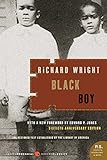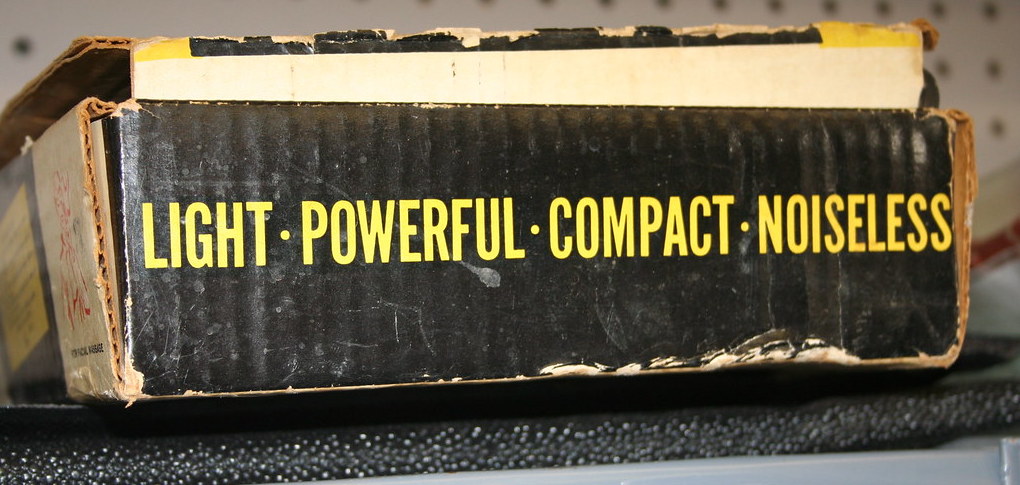A common admonition in recent creative writing pedagogy is, “Cut as many adjectives as possible.” I would like to propose that this rule springs from mere prejudice. There’s nothing inherently wrong with adjectives; they’re just out of fashion. In fact (and in fiction), they can be used, in surprising abundance, to good, even brilliant effect.
Today’s writers, I guess, consider themselves superior to, say, Charles Dickens. And Mark Twain. And Henry James. Not to mention James Joyce and Leo Tolstoy. Let’s take a look, shall we, at cold hard evidence.
 Twain’s writing was sometimes spare in terms of adjectives, but other times richly spiced, as in this excerpt from Life on the Mississippi.
Twain’s writing was sometimes spare in terms of adjectives, but other times richly spiced, as in this excerpt from Life on the Mississippi.
I still keep in mind a certain wonderful sunset which I witnessed when steamboating was new to me. A broad expanse of the river was turned to blood; in the middle distance the red hue brightened into gold, through which a solitary log came floating, black and conspicuous; in one place a long, slanting mark lay sparkling upon the water; in another the surface was broken by boiling, tumbling rings, that were as many-tinted as an opal; where the ruddy flush was faintest, was a smooth spot that was covered with graceful circles and radiating lines, ever so delicately traced; the shore on our left was densely wooded, and the sombre shadow that fell from this forest was broken in one place by a long, ruffled trail that shone like silver; and high above the forest wall a clean-stemmed dead tree waved a single leafy bough that glowed like a flame in the unobstructed splendor that was flowing from the sun.
 Okay, you say, handing out the tired old adage about one robin not making a spring. You’re not convinced. Let’s turn to Dickens and the powerful adjectives in this excerpt from Hard Times (or would it be better as, simply, Times?).
Okay, you say, handing out the tired old adage about one robin not making a spring. You’re not convinced. Let’s turn to Dickens and the powerful adjectives in this excerpt from Hard Times (or would it be better as, simply, Times?).
It was a town of machinery and tall chimneys, out of which interminable serpents of smoke trailed themselves for ever and ever, and never got uncoiled. It had a black canal in it, and a river that ran purple with ill-smelling dye, and vast piles of building full of windows where there was a rattling and a trembling all day long, and where the piston of the steam-engine worked monotonously up and down, like the head of an elephant in a state of melancholy madness.
 I think I see adjectives. But two examples make a paltry coincidence, you say. Objection sustained. Here’s the reasonably prestigious Henry James in A Small Boy and Others:
I think I see adjectives. But two examples make a paltry coincidence, you say. Objection sustained. Here’s the reasonably prestigious Henry James in A Small Boy and Others:
I turn around again to where I last left myself gaping at the old rickety bill-board in Fifth Avenue; and am almost as sharply aware as ever of the main source of its spell, the fact that it most often blazed with the rich appeal of Mr. Barnum, whose “lecture room,” attached to the Great American Museum, overflowed into posters of all the theatrical bravery disavowed by its title. It was my rueful theory of those days — though tasteful I may call it too as well as rueful — that on all the holidays on which we weren’t dragged to the dentist’s we attended as a matter of course at Barnum’s, that is when we were so happy as to be able to; which, to my own particular consciousness, wasn’t every time the case. The case was too often, to my melancholy view, that W. J., quite regularly, on the non-dental Saturdays, repaired to this seat of joy with the easy Albert — he at home there and master of the scene to a degree at which, somehow, neither of us could at the best arrive…
Let’s move on to a short story, “The Raid,” by Tolstoy, sometimes considered a decent writer:
The battalion was about five hundred yards ahead of us and looked like a black, dense, oscillating mass. It was possible to guess that this was an infantry battalion only because, like long densely packed needles, the bayonets were visible…The sun was not yet visible, but the crest of the right side of the ravine had begun to be lit up.The grey and whitish rock, the yellowish green moss, the dew covered bushes of Christ’s Thorn, dogberry, and dwarf elm appeared extraordinarily distinct and salient in the golden morning light, but the other side and the valley, wrapped in thick mist which floated in uneven layers ,were damp and gloomy and presented an indefinite mingling of colors: pale purple, almost black, dark green, and white.
“Needless decoration,” you say. “Who cares about colors?” Let’s look at James Joyce, then, regarded in some circles as a fairly proficient writer, and his story, which you may have heard of, “The Dead.”
The tears gathered more thickly in his eyes and in the partial darkness he imagined he saw the form of a young man standing under a dripping tree. Other forms were near. His soul had approached that region where dwell the vast hosts of the dead. He was conscious of, but could not apprehend, their wayward and flickering existence. His own identity was fading out into a grey impalpable world: the solid world itself, which these dead had one time reared and lived in, was dissolving and dwindling.
“Okay, but those are all men, old dead men,” you object.
 I hear you. I hear you, loud and clear. Bring on the women—both the living and the dead. Herewith Jane Austen’s Emma:
I hear you. I hear you, loud and clear. Bring on the women—both the living and the dead. Herewith Jane Austen’s Emma:
Emma Woodhouse, handsome, clever, and rich, with a comfortable home and happy disposition, seemed to unite some of the best blessings of existence; and had lived nearly twenty-one years in the world with very little to distress or vex her. She was the youngest of the two daughters of a most affectionate, indulgent father; and had, in consequence of her sister’s marriage, been mistress of his house from a very early period.
 I guess we’d be better off if Emma just had a home and disposition. You aren’t satisfied. You aren’t happy. You have strong objections: “She may be a woman, but she’s old.” All right then, we’ll turn then to Annie Proulx, who is, to the best of my knowledge, still living. Let’s examine That Old Ace in the Hole (should we delete “Old”?) which was published in 2002.
I guess we’d be better off if Emma just had a home and disposition. You aren’t satisfied. You aren’t happy. You have strong objections: “She may be a woman, but she’s old.” All right then, we’ll turn then to Annie Proulx, who is, to the best of my knowledge, still living. Let’s examine That Old Ace in the Hole (should we delete “Old”?) which was published in 2002.
In late March Bob Dollar, a young, curly-headed man of twenty-five with the broad face of a cat, pale innocent eyes fringed with sooty lashes, drove east along Texas State Highway 15 in the panhandle, down from Denver the day before, over the Raton Pass and through the dead volcano country of northeast New Mexico to the Oklahoma pistol barrel, then a wrong turn north and wasted hours before he regained the way. It was a roaring spring morning with green in the sky, the air spiced with sand sagebrush and aromatic sumac. NPR faded from the radio in a string of announcements of corporate supporters, replaced by a Christian station that alternated pabulum preaching and punchy music. He switched to shit-kicker airwaves and listened to songs about staying home, going home, being home and the errors of leaving home.
 Some, it seems, prefer eyes that are fringed with lashes rather than sooty lashes. I don’t get it, but you be you. Let’s shift gears and turn our attention to Richard Wright’s generally well-regarded memoir, Black Boy. Wright’s work begins thus:
Some, it seems, prefer eyes that are fringed with lashes rather than sooty lashes. I don’t get it, but you be you. Let’s shift gears and turn our attention to Richard Wright’s generally well-regarded memoir, Black Boy. Wright’s work begins thus:
One winter morning in the long-ago, four-year-old days of my life I found myself standing before a fireplace, warming my hands over a mound of glowing coals, listening to the wind whistle past the house outside. All morning my mother had been scolding me, telling me to keep still, warning me that I must make no noise. And I was angry, fretful, and impatient.
Or maybe Wright wasn’t any of those adjectives; maybe he just was.
 “Very good,” you say, “but what about authors outside of North America and Europe? Do they use adjectives?” (A deafening yes! Whoops, I mean just yes.) Let’s see if Gabriel Garcia Marquez fits the bill. One Hundred Years of Solitude is regarded by some as an acceptable piece of literature.
“Very good,” you say, “but what about authors outside of North America and Europe? Do they use adjectives?” (A deafening yes! Whoops, I mean just yes.) Let’s see if Gabriel Garcia Marquez fits the bill. One Hundred Years of Solitude is regarded by some as an acceptable piece of literature.
At that time Macondo was a village of twenty adobe houses, built on the bank of a river of clear water that ran along a bed of polished stones, which were white and enormous, like prehistoric eggs. The world was so recent that many things lacked names, and in order to indicate them it was necessary to point. Every year during the month of March a family of ragged gypsies would set up their tents near the village, and with a great uproar of pipes and kettledrums they would display new inventions. First they brought the magnet. A heavy gypsy with an untamed beard and sparrow hands, who introduced himself as Melquíades, put on a bold public demonstration of what he himself called the eighth wonder of the learned alchemists of Macedonia.
It seems Garcia Marquez is guilty of adjective use in at least the second degree. How sad. How unfortunate. Turning to Japan, Kenzaburo Oe’s work won a Nobel Prize. But perhaps the committee in Sweden was lazy or busy and overlooked the shockingly excessive adjectives in this problematic excerpt from Prize Stock:
My brother and I ran over to the blacksmith’s shed in the shade of the lush nettle tree. In the darkness inside, the charcoal fire on the dirt floor spit no tongues of red flame, the bellows did not hiss, the blacksmith lifted no red-hot steel with his lean, sun-blackened arms. Morning and the blacksmith not in his shop – we had never known this to happen. Arm in arm, my brother and I walked back along the cobblestone road in silence. The village was empty of adults. The women were probably waiting at the back of their dark houses. Only the children were drowning in the flood of sunlight. My chest tightened with anxiety.
Harelip spotted us from where he was sprawled at the stone steps that descended to the village fountain and came running over, arms waving. He was working hard at being important, spraying fine white bubbles of sticky saliva from the split in his lip.
“Well, he may be a living writer, but he’ still pretty old,” you grumble.
 With astonishing patience, I bring forth my final sample, Zadie Smith’s White Teeth (Just Teeth would be better?). She’s alive, modern, young, possibly even cutting-edge.
With astonishing patience, I bring forth my final sample, Zadie Smith’s White Teeth (Just Teeth would be better?). She’s alive, modern, young, possibly even cutting-edge.
Archie was too far gone to make a big noise about it, but he watched them with a warm internal smile as they deposited their load, streaking white walls purple. He watched them stretch their peering bird heads over the Hussein-Ishmael gutter; he watched them watch the slow and steady draining of blood from the dead things – chickens, cows, sheep – hanging on their hooks like coats around the shop. The Unlucky. These pigeons had an instinct for the Unlucky, and so they passed Archie by. For, though he did not know it, and despite the Hoover tube that lay on the passenger seat pumping from the exhaust pipe into his lungs, luck was with him that morning. The thinnest covering of luck was on him like fresh dew.
May I rest my heavy-laden case? Given such copious evidence, it troubles me that people are trying to evict useful and innocent adjectives from the language they occupied long before such critics did. I just hope the next time an adjective-hater books a flight to paradise, he or she alights in Antarctica. Then maybe these individuals will wish they had booked a tropical paradise.
Image credit: Flickr/Alan Levine.









